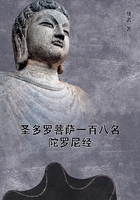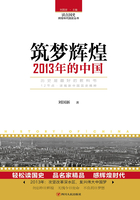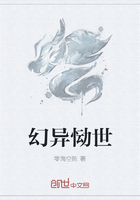The part of the speech which seems to arouse the wildest and most sensational enthusiasm was that in which I thanked the President for his recognition of the Negro in his appointments during the Spanish-American war. The President was sitting in a box at the right of the stage. When I addressed him I turned toward the box, and as I finished the sentence thanking him for his generosity, the whole audience rose and cheered again and again, waving handkerchiefs and hats and canes, until the President arose in the box and bowed his acknowledgements. At that the enthusiasm broke out again, and the demonstration was almost indescribable.
One portion of my address at Chicago seemed to have been misunderstood by the Southern press, and some of the Southern papers took occasion to criticise me rather strongly. These criticisms continued for several weeks, until I finally received a letter from the editor of the Age-Herald, published in Birmingham, Ala., asking me if I would say just what I meant by this part of the address. I replied to him in a letter which seemed to satisfy my critics. In this letter I said that I had made it a rule never to say before a Northern audience anything that I would not say before an audience in the South. I said that I did not think it was necessary for me to go into extended explanations; if my seventeen years of work in the heart of the South had not been explanation enough, I did not see how words could explain. I said that I made the same plea that I had made in my address at Atlanta, for the blotting out of race prejudice in "commercial and civil relations." I said that what is termed social recognition was a question which I never discussed, and then I quoted from my Atlanta address what I had said there in regard to that subject.
In meeting crowds of people at public gatherings, there is one type of individual that I dread. I mean the crank. I have become so accustomed to these people now that I can pick them out at a distance when I see them elbowing their way up to me. The average crank has a long beard, poorly cared for, a lean, narrow face, and wears a black coat. The front of his vest and coat are slick with grease, and his trousers bag at the knees.
In Chicago, after I had spoken at a meeting, I met one of these fellows. They usually have some process for curing all of the ills of the world at once. This Chicago specimen had a patent process by which he said Indian corn could be kept through a period of three or four years, and he felt sure that if the Negro race in the South would, as a whole, adopt his process, it would settle the whole race question. It mattered nothing that I tried to convince him that our present problem was to teach the Negroes how to produce enough corn to last them through one year. Another Chicago crank had a scheme by which he wanted me to join him in an effort to close up all the National banks in the country. If that was done, he felt sure it would put the Negro on his feet.
The number of people who stand ready to consume one's time, to no purpose, is almost countless. At one time I spoke before a large audience in Boston in the evening. The next morning I was awakened by having a card brought to my room, and with it a message that some one was anxious to see me. Thinking that it must be something very important, I dressed hastily and went down. When I reached the hotel office I found a blank and innocent-looking individual waiting for me, who coolly remarked:
"I heard you talk at a meeting last night. I rather liked your talk, and so I came in this morning to hear you talk some more."
I am often asked how it is possible for me to superintend the work at Tuskegee and at the same time be so much away from the school. In partial answer to this I would say that I think I have learned, in some degree at least, to disregard the old maxim which says, "Do not get others to do that which you can do yourself." My motto, on the other hand, is, "Do not do that which others can do as well."
One of the most encouraging signs in connection with the Tuskegee school is found in the fact that the organization is so thorough that the daily work of the school is not dependent upon the presence of any one individual. The whole executive force, including instructors and clerks, now numbers eighty-six. This force is so organized and subdivided that the machinery of the school goes on day by day like clockwork. Most of our teachers have been connected with the institutions for a number of years, and are as much interested in it as I am. In my absence, Mr. Warren Logan, the treasurer, who has been at the school seventeen years, is the executive. He is efficiently supported by Mrs. Washington, and by my faithful secretary, Mr. Emmett J. Scott, who handles the bulk of my correspondence and keeps me in daily touch with the life of the school, and who also keeps me informed of whatever takes place in the South that concerns the race. I owe more to his tact, wisdom, and hard work than I can describe.
The main executive work of the school, whether I am at Tuskegee or not, centres in what we call the executive council. This council meets twice a week, and is composed of the nine persons who are at the head of the nine departments of the school. For example: Mrs. B.K. Bruce, the Lady Principal, the widow of the late ex-senator Bruce, is a member of the council, and represents in it all that pertains to the life of the girls at the school.
In addition to the executive council there is a financial committee of six, that meets every week and decides upon the expenditures for the week. Once a month, and sometimes oftener, there is a general meeting of all the instructors. Aside from these there are innumerable smaller meetings, such as that of the instructors in the Phelps Hall Bible Training School, or of the instructors in the agricultural department.















